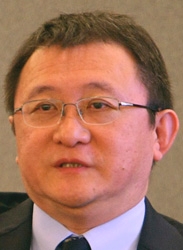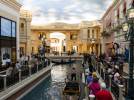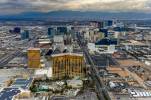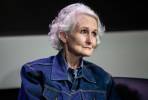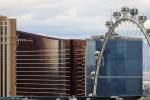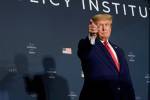Sands attorney says businessman did ‘virtually nothing’ to help win Macau contract
CARSON CITY -- An attorney representing Las Vegas Sands Corp. told the Nevada Supreme Court on Thursday that a Hong Kong businessman "did virtually nothing" to help the casino operator win a lucrative gaming license in Macau.
In seeking to overturn the 2-year-old nearly $60 million landmark verdict, attorney David Frederick told the seven justices that a Clark County District Court jury relied on three levels of conjecture when it ruled against the casino operator following a 29-day trial.
The Supreme Court heard nearly an hour of arguments from attorneys representing Las Vegas Sands and Hong Kong businessman Richard Suen before taking the matter under advisement. One lawyer speculated it could be as long as four months before a decision is rendered.
Suen sought compensation from Las Vegas Sands after he arranged a series of meetings in Beijing in July 2001 between company executives and members of the Chinese government. Suen contended the meetings paved the way for Las Vegas Sands to earn a lucrative gaming license in Macau.
The company now operates three casinos in Macau, including the 3,000-room Venetian Macau and Sands Macau. Las Vegas Sands recently restarted construction on four hotel-casinos on the Cotai Strip region of Macau after a two-year delay.
In May 2008, a Clark County jury agreed with Suen, awarding him $43.8 million. Another $14.8 million in interest was tacked onto the verdict.
"There is no evidence that his actions had any effect on the Macau license," Frederick told the court.
He said the meetings in Beijing didn't have anything to do with Las Vegas Sands ultimately getting a license.
Frederick argued that the evidence showed the former chief executive of Macau, Edmund Ho, ultimately changed the process and awarded Las Vegas Sands a subconcession to operate in Macau after the company couldn't agree with its partner in the process, Hong Kong-based Galaxy Entertainment.
"There is not a shred of evidence that China had anything to do with the decision," Frederick said. "They inferred the existence of that evidence. The claim was built on one conjecture, on top of another conjecture and on a third conjecture."
Jurors interviewed after the trial said they thought the meetings Suen set up in Beijing were important to the process.
Justice Michael Cherry asked Suen's attorney, Todd Bice, whether Suen's efforts "were worth $43 million."
Bice told the justice the verdict "should have been higher" because the compensation Las Vegas Sands executives offered Suen before the lawsuit was actually worth upward of $100 million by their own testimony.
The trial included the daylong testimony of Las Vegas Sands Chairman and Chief Executive Officer Sheldon Adelson, who at the time was considered the third richest person in America. Also, former Las Vegas Sands President Bill Weidner spent parts of six days testifying in the case.
Bice told the justices that Weidner's testimony about a meeting he had in secret with Ho in China was not objected to as "hearsay evidence." During the trial two members of the Macau Tender Commission testified they were never aware of the Weidner-Ho meeting.
Adelson and Weidner, however, claimed Suen didn't help the company win its license, but thought he was owed something for his effort, anywhere from $400,000 to a procurement contract that Adelson testified in a deposition may have been worth up to $100 million.
In trial testimony it was revealed that Weidner originally offered Suen $5 million and 2 percent of the net profits from the company's Macau casinos if he was successful "in delivering the license."
Frederick told the court Suen lacked any standing for payment.
"He is seeking unjust enrichment," Frederick said.
The attorney also contended that if Las Vegas Sands is forced to pay Suen, then a group of associates Suen used to set up the meetings in Beijing could also sue the company to seek additional compensation.
Bice told the court that testimony from Adelson showed that Suen's associates, including Adelson's brother, Lenny Adelson, needed to approach Suen for payment.
"They raised this issue as an afterthought because the jury verdict came out bad for them," Bice said. "Even Adelson told his own brother he needed to collect from Suen."
The case was appealed to the Nevada Supreme Court in January 2009.
The trial revealed the inner-workings of how Las Vegas Sands won a shared gaming concession in Macau and included the testimony of current and former Macau government officials.
The makeup of Las Vegas Sands has changed since the case was first tried.
The company avoided a bankruptcy by restructuring its debt, which forced Adelson to reduce his ownership stake by some 20 percent. However, the collapsing credit markets forced the company to halt construction of several projects on Macau's Cotai Strip.
Weidner was fired as president in March 2009 and replaced by Michael Leven.
Also, the legal team that handled the trial for Las Vegas Sands was dismissed and replaced with new lawyers for the appeal.
A second trial over how Las Vegas Sands obtained its Macau gaming license was averted in June 2009. The company paid three men who claimed they assisted the company in the process $42.5 million to drop their lawsuit.
Contact reporter Howard Stutz at hstutz@reviewjournal.com or 702-477-3871.



